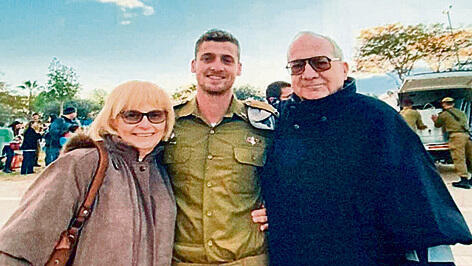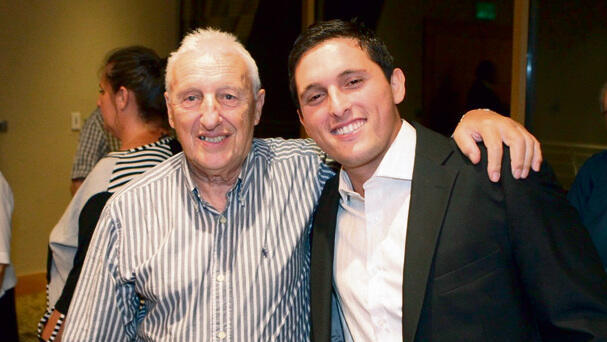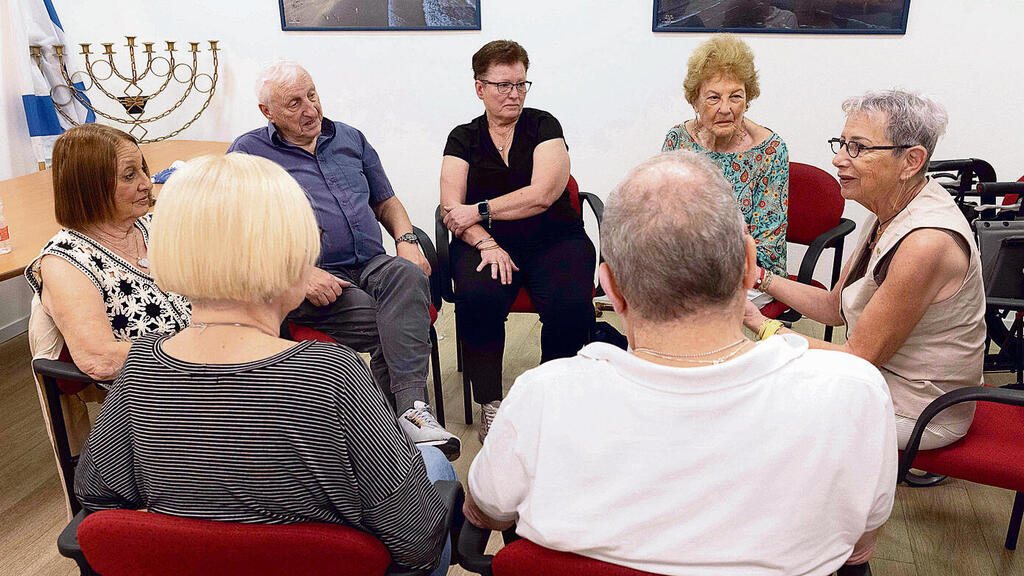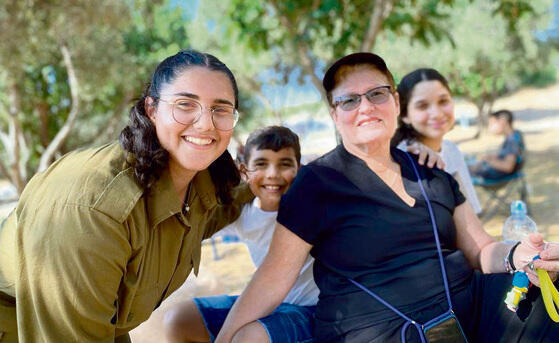They were here when Israel was in its infancy, growing and maturing alongside the Zionist dream. Over the years, they experienced wars and periods of security tensions, they fought, and risked their lives to ensure we had a nation – a safe haven for themselves and the grand family tree they nurtured. In their worst nightmares, they never imagined a tragedy like the one that unfolded on the morning of October 7.
The Hamas massacre and the subsequent war in Gaza has claimed the lives of many young people, leaving behind heartbroken grandparents who unwillingly joined the ranks of the bereaved.
"I see Noa beside me all the time," describes Bella Shoshan, grandmother of the late Cpl. Noa Marciano, an IDF lookout who was kidnapped from the Nahal Oz base and murdered in Hamas captivity. "She tells me, 'Smile as if there’s no tomorrow, stop grieving, enjoy life.' I know that's what she would want, but I can’t. Every day gets worse, harder. I thought time would heal, but it hasn’t."
We meet at a group therapy session organized by the Eliya Center for bereaved grandparents who lost their grandchildren in the war. Here, they explain, they feel understood and supported in their grief.
"When you're with people who have gone through exactly what you have, it's different," shares Shosh Gogol, grandmother of the late Capt. Asaf Master, who fell in battle in northern Gaza. "It feels like they understand you, they know what you’re talking about."
"It's very hard; the sky fell on us," adds Bella. "As a mother and grandmother, it's a double grief, for our granddaughter and for my daughter, who I see struggling every day." Throughout the meeting, emotions surface, and the pain is palpable through choked-back tears.
"Losing Asaf is like losing a part of myself," shares Dani, his grandfather. "I see him all day long. Conversations with Asaf always started with 'Grandpa, how are you?' I miss that. I haven’t recovered. I keep writing to him. I wake up in the morning, check my email for a reply from him, and cry a lot."
"What would he reply if he could?" asks Ariela Zeevi, a psychotherapist and group facilitator at the Eliya Center leading the session.
"Get better, I love you, I’m in a better place watching over you," answers Dani.
'We are a generation that nurtured, cared for and helped'
Zeevi analyzes the unique bond between today's grandparents and their grandchildren, which makes the loss so profound and difficult. "Unlike in previous periods of war in Israel, this generation of grandparents is much younger and more involved in raising their grandchildren, creating a more intense relationship. Therefore, the sense of loss is more pronounced, more felt and more tangible," she says.
4 View gallery


Captain Asaf Master with his grandparents, Shosh and Dani
(Photo: Courtesy of the family)
Esther Bekrach lost her grandson, Capt. Yiftach Yavetz, on October 7. He was among the first responders to the Gaza border, facing a large number of terrorists. "Losing a grandson is very hard," she describes at the meeting. "He was my first grandchild, and we were very close. I recently remembered how, when he was two, I would pick him up from kindergarten and take him to my house every day. He practically grew up with me. The pain is tearing."
"Today’s grandparents are different," emphasizes Dani. "We are a generation that nurtured, cared for, helped both our children and grandchildren. I don’t remember going on trips with my grandfather. The relationship with our grandchildren is entirely different, and so is our involvement in their upbringing."
Jerry and Sheila Deitch, grandparents of the late Sgt. Maj. (res.) Jonathan Deitch, attended the meeting exactly six months after he was killed in a Gaza battle. "We went to the grave and cried," Jerry recounts. "It’s very hard. He wasn't just a grandson; he was a friend. Jonathan and I did many things together, and traveled together. But he’s still with me – here and here," he says, pointing to his heart and head.
4 View gallery


Jerry with his grandson Sgt. Maj. (res.) Jonathan Deitch
(Photo: Courtesy of the family)
"It’s almost like losing a child."
Since October 7, the Eliya Center has been supporting various groups through group, family and individual therapy, providing psychological assistance for coping with loss and trauma. This particular group was established in collaboration with the Social Equality Ministry and Yad LeBanim.
During the meeting, the grandparents express their need for recognition, especially social recognition, of the magnitude of their loss. "No one mentions 'grandparents' when they talk about the bereaved," they explain. "We are sidelined."
"On Memorial Day, at one of the ceremonies, they described Jonathan as a son, a brother – everything but a grandson," says Sheila, Jonathan's grandmother. "That made me angry."
"The feeling is that there is no acknowledgment, even though sometimes grandparents are as close as first-degree relatives," explains Zeevi, reflecting the sentiments shared in the group. "Something very powerful has been created in this group. A support group with personal connections and mutual support. Here, they feel acknowledged as bereaved grandparents."




